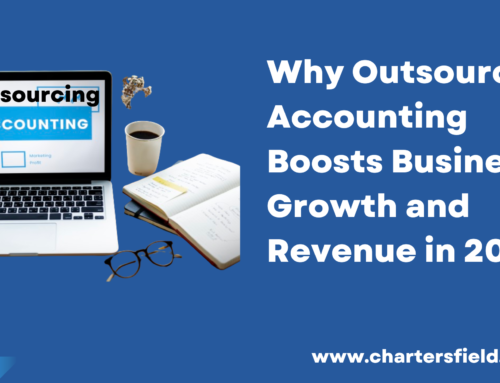Introduction
In recent years, businesses have witnessed a significant shift in how they manage their accounting and financial operations. Traditional in-house accounting practices are being replaced by a more dynamic and efficient approach known as accounting. This transformation, facilitated by technological advancements and changing work dynamics, offers businesses greater flexibility, cost-effectiveness, and access to specialized expertise. In recent years, businesses have witnessed a significant shift in how they manage their accounting and financial operations. Traditional in-house accounting practices are being replaced by a more dynamic and efficient approach known as accounting. facilitated by technological advancements and changing work dynamics, offers businesses greater flexibility, cost-effectiveness, and access to specialized expertise.
Setting the Scene: The Shift to Accounting
Accounting is no longer confined to physical office spaces. With the rise of cloud-based software, virtual communication tools, and secure file-sharing platforms, accounting has become the new norm. This shift signifies more than just a change in location; it represents a fundamental shift in how financial tasks are approached and executed.
Why Remote Accounting Matters: Understanding the Need
In today’s fast-paced business environment, agility is crucial for success. Remote accounting provides the agility businesses need to adapt quickly to changing circumstances and seize new opportunities. By outsourcing accounting tasks, companies can focus on core activities, driving growth and innovation. Additionally, remote accounting offers cost-saving benefits and enhances data security and compliance, making it a strategic choice for businesses aiming to thrive in the digital era.
The Benefits of Remote Accounting
Flexibility at Your Fingertips
Remote accounting provides unparalleled flexibility, enabling professionals to work from virtually anywhere with an internet connection. This flexibility empowers accountants to customize their work schedule to their preferences and obligations, whether it involves accommodating personal commitments or optimizing peak productivity hours. With remote accounting, traditional work-hour constraints are eliminated, giving professionals the freedom to work when and where they perform best.
Diving into Remote Work Culture
In today’s interconnected world, remote work has become increasingly common. Remote accounting enables professionals to work from anywhere, freeing them from the constraints of a traditional office setting. This flexibility opens up new opportunities for accountants, allowing them to customize their work environment to their liking and maximize their productivity.
Balancing Work and Life: Achieving Personal Harmony
One of the most significant advantages of remote accounting is the ability to achieve a better work-life balance. By eliminating the need for a daily commute and providing greater control over work hours, remote accounting empowers individuals to allocate time to personal pursuits and family obligations. This balance promotes overall well-being and satisfaction, resulting in happier and more fulfilled professionals.
Cost-Effective Solutions for Financial Efficiency
Budget-Friendly Solutions: A Smart Financial Move
Remote accounting offers significant cost-saving opportunities for businesses. By transitioning to remote accounting services, an important advantage of remote accounting is its scalability. Whether a business is a small startup or a multinational corporation, remote accounting services can be customized to meet its specific needs and budget. As businesses expand and evolve, remote accounting providers can easily adjust their services to accommodate changing requirements. This scalability ensures that businesses always have access to the resources and support needed to succeed without exceeding their budgets.
Accessing Expertise Whenever You Need It
Global Talent Access
Remote accounting opens up access to a global talent pool for businesses, allowing them to tap into a diverse range of accounting professionals worldwide. Instead of being limited to local hires, businesses can leverage a wealth of skills and expertise from around the world. This global talent pool enables businesses to find professionals with the right expertise for their specific needs, whether it’s knowledge of tax laws, industry-specific expertise, or proficiency in specialized accounting software. By utilizing this global talent pool, businesses can enhance their financial capabilities and achieve greater success.
Tailored Solutions for Unique Challenges
Remote accounting providers offer specialized skills and expertise to address the unique challenges and opportunities faced by businesses. Whether it’s navigating complex tax regulations, conducting forensic accounting investigations, or implementing advanced financial reporting systems, remote accounting professionals have the knowledge and experience to deliver customized solutions. By partnering with remote accounting providers, businesses can access the specialized expertise needed to overcome obstacles, seize opportunities, and achieve their financial goals.
Cloud-Based Accounting Software: The Future is Here
Exploring Cloud Solutions
Cloud-based accounting software has revolutionized financial management by offering convenient access to financial data from anywhere with an internet connection. Users can work remotely, collaborate seamlessly, and perform tasks such as invoicing, expense tracking, and financial reporting efficiently from any device.
Protecting Your Data Fortress
Security is a top priority for cloud accounting platforms, which employ robust measures to safeguard sensitive financial information. These measures include encryption protocols, multi-factor authentication, and compliance with industry-specific regulations such as GDPR and SOC 2 compliance, ensuring data privacy and integrity.
Communicating Like a Pro
The Power of Video Conferencing
Video conferencing facilitates face-to-face communication and enhances collaboration among remote accounting teams. Platforms like Zoom and Microsoft Teams enable virtual meetings, brainstorming sessions, and real-time discussions, fostering engagement and teamwork.
Instant Communication: Messaging and Collaboration Tools
Instant messaging platforms such as Slack and Microsoft Teams facilitate quick and efficient communication among remote accounting professionals. These tools enable real-time messaging, file sharing, and task management, enhancing productivity and collaboration.
Sharing files Securely
Streamlining Data Exchange: The Efficiency Factor
Secure file-sharing platforms like Dropbox and Google Drive streamline data exchange by providing centralized storage and access to documents, spreadsheets, and financial reports. Features like version control and access permissions ensure secure and efficient collaboration.
Priority on Confidentiality
Secure file-sharing platforms prioritize confidentiality by implementing encryption and access controls to protect sensitive financial information. Compliance with data protection regulations ensures data privacy and confidentiality, enabling accounting professionals to collaborate securely.
Navigating the Transition to Remote Accounting
Taking Stock of Your Current Processes
Before embarking on the transition to remote accounting, it’s essential to conduct a thorough evaluation of your current accounting processes. This involves assessing all aspects of your accounting operations, from bookkeeping to financial reporting, to identify strengths, weaknesses, and areas for improvement.
Pinpointing Pain Points: Identifying Areas for Improvement
Start by pinpointing pain points within your current accounting processes. These could include manual data entry tasks that are time-consuming and prone to errors, inefficient communication between team members, or challenges with accessing financial information in a timely manner.
Gather feedback from your accounting team to gain insights into their day-to-day experiences and frustrations with the existing processes. This feedback is invaluable for understanding where improvements are needed and identifying opportunities to streamline workflows and enhance efficiency.
Setting Your Sights: Clear Objectives for the Transition
Once you’ve identified areas for improvement, it’s essential to set clear objectives for the transition to remote accounting. Define specific goals that you aim to achieve through the transition, such as improving efficiency, reducing costs, or enhancing data security.
Align your objectives with your broader business goals and strategic priorities to ensure that the transition to remote accounting aligns with your organization’s overall mission and objectives. By setting clear and measurable objectives, you can track progress and evaluate the success of the transition over time. With your objectives in mind, the next step is to find the right remote accounting service provider to support your transition. Research and evaluate potential providers based on their experience, expertise, and reputation in the industry.
When evaluating providers, consider factors such as their track record in delivering remote accounting services, the range of services they offer, and their ability to tailor their services to meet your specific needs. Look for providers who have experience working with businesses similar to yours and who can provide references or case studies demonstrating their success.
Building Bridges: Establishing Communication Protocols
Effective communication is key to a successful transition to remote accounting. Establish clear communication protocols and expectations with your chosen provider from the outset.
Define communication channels, such as email, video conferencing, or project management tools, and establish regular check-ins and progress meetings to ensure that everyone is on the same page. Clearly communicate roles, responsibilities, and timelines to ensure that tasks are completed on time and within budget.
Overcoming Challenges in Remote Accounting
In remote accounting, maintaining team connectivity, data security, and productivity are critical objectives. To ensure effective collaboration, trust-building and transparent communication are key. Utilizing technology for seamless communication and fostering informal interaction through virtual events can enhance team cohesion. Meanwhile, safeguarding financial data necessitates stringent security measures such as encryption and access controls, along with compliance with regulations. Lastly, productivity relies on clear goal-setting, resource provision, and promoting collaboration and accountability. By addressing these challenges adeptly, remote accounting services teams can excel in the digital era, driving organizational success.
Keeping Teams Connected:
Foster Trust and Collaboration: Encourage transparent communication among team members to build trust and enhance collaboration. Utilize technology for seamless communication and organize virtual team-building activities to strengthen connections.
Protecting Data and Ensuring Compliance:
Implementing Strong Security Measures: Utilize encryption and access controls to safeguard sensitive financial data. Conduct regular security audits to identify and address vulnerabilities. Ensure compliance with applicable regulations such as GDPR, HIPAA, or SOX.
Maintaining Productivity:
Setting Clear Goals and Expectations: Define clear objectives and priorities for remote accounting teams. Provide the necessary resources and support for their tasks. Foster collaboration and accountability to maintain high levels of productivity.
Maximizing the Potential of Remote Accounting
Riding the Wave of Real-Time Insights
In the dynamic business environment, remote accounting services offer access to real-time insights crucial for decision-making. Through analytics, businesses can make data-driven decisions, shaping their path to success. These insights not only provide a comprehensive financial overview but also allow organizations to anticipate trends and seize opportunities. By staying proactive, businesses position themselves strategically, leveraging emerging trends for growth.
Driving Growth with Financial Strategy
Remote accounting empowers businesses to foster growth through strategic financial management. By allocating resources strategically, organizations ensure optimal utilization of every dollar for maximum returns. Moreover, remote accounting enables businesses to identify and optimize revenue streams, enhancing profitability. Analyzing financial data remotely helps pinpoint areas of success and invest resources wisely for expansion.
Fostering Innovation and Adaptation
Remote accounting cultivates a culture of innovation and adaptability within organizations. By embracing change and overcoming challenges, businesses remain agile and resilient. Remote accounting also emphasizes continuous learning, urging organizations to invest in skills development for their accounting teams. Enhanced skills and industry knowledge enable professionals to drive innovation and meet evolving business demands effectively.
Case Studies: Real Stories, Real Results
Showcasing Businesses Thriving with Remote Accounting
Explore firsthand accounts of businesses flourishing in the digital era through remote accounting solutions. Witness how organizations of all sizes have embraced remote accounting to streamline financial operations, enhance decision-making, and foster growth. From startups to established enterprises, delve into real-world examples illuminating the transformative impact of remote accounting on their bottom line.
Must Read:https://www.linkedin.com/pulse/remote-accounting-jobs-demand-top-skills-certifications-jdr0f
Highlighting Successes and Lessons Learned
Delve into the triumphs and trials of businesses that have embraced remote accounting, yielding tangible results. Gain insights into the challenges they encountered, the strategies they employed, and the outcomes they achieved. Extract valuable lessons learned, including practical tips, pitfalls to sidestep, and pivotal insights for implementing remote accounting successfully within your own organization.
Drawing Inspiration: Your Journey Begins Here
Feel empowered to embark on your own path of transformation with remote accounting. Uncover how remote accounting can revolutionize your financial management processes, drive operational efficiency, and catalyze business growth. Whether you’re a small business owner or a seasoned entrepreneur, find inspiration and actionable guidance to initiate your remote accounting services journey and unlock your business’s full potential.
Conclusion
Embrace Remote Accounting: Your Path to Financial Freedom
Remote accounting offers more than just a solution; it’s a pathway to financial independence. By embracing remote accounting, businesses can unlock efficiencies, make informed decisions, and drive growth. From streamlining processes to fostering collaboration, remote accounting services empower businesses to achieve sustainable success in today’s digital landscape.
Ready to get started? Let’s navigate finance together!
Are you prepared to transform your financial management practices? Let’s embark on this journey side by side. With remote accounting as our guide, we can navigate the complexities of finance with clarity and confidence. Whether you’re a small startup or a large corporation, remote accounting provides the tools and strategies to thrive. Let’s take the plunge and shape your financial future together.



